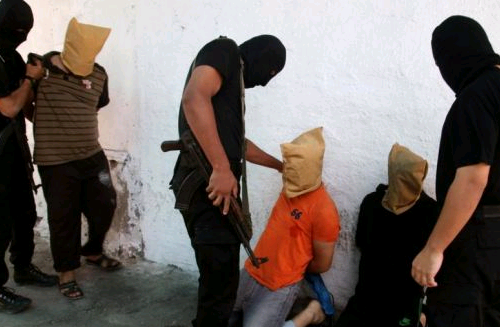
(March of Life at the Brandenburg Gate, against racism, antisemitism and Israel hatred.)
FACING UP TO THE REALITY OF ISLAMIC ANTISEMITISM
Several incidents in 2018 have highlighted the problem of Islamic antisemitism in Germany. In April, a Syrian immigrant attacked a young Israeli wearing a kippa in Berlin. The attack was caught on video, causing a scandal.[1] In the same month, two antisemitic rappers of Muslim background received the Echo music award, the German equivalent of the American Grammy. In one of their more innocuous songs they had sung: ‘My body is more defined than that of Auschwitz inmates.’ The ensuing controversy led to the abolition of the Echo awards.[2] Many observers and politicians, including German chancellor Angela Merkel, expressed the view that Islamic antisemitism in Germany was a relatively recent phenomenon, starting in earnest with the arrival of more than a million immigrants of mostly Muslim background in 2015.[3] This view, however, is quite wrong.
In fact, Islamic antisemitism has been a problem in Germany for at least two decades. In 2000, when a synagogue in the German city of Düsseldorf was firebombed, then-Chancellor Gerhard Schröder called for ‘an insurgency of decent people’ against German right-wing extremism. When the police discovered that the perpetrators were not German neo-Nazis but two young antisemites of Moroccan and Jordanian descent, this inconvenient fact was largely ignored by politicians and the media.[4] Since then, there have been a legion of incidents where Jewish children were bullied, Jewish soccer players attacked on the field or groups of tourists harassed by Muslim antisemites – occasionally prompting headlines and condemnations by politicians. Stephan Kramer, the General Secretary of the Central Council of the Jews, the Jewish umbrella organisation in Germany, observed already in 2007 that the ‘the violence in the Muslim camp is comparable to that in the extreme right.’[5]Apparently, these words had little consequence. READ MORE.




